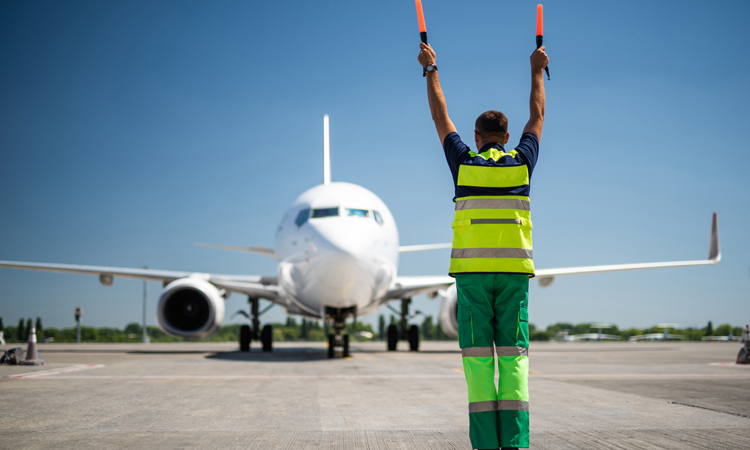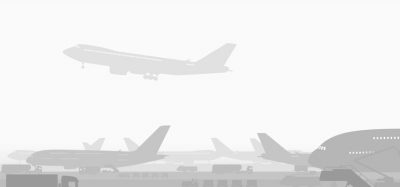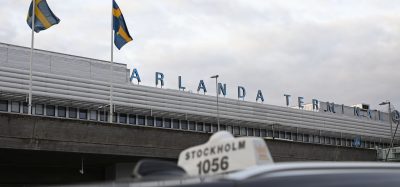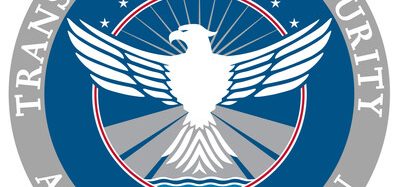ICAO calls for aviation personnel to be considered key workers
Posted: 27 May 2020 | International Airport Review | No comments yet
By making aviation personnel designated key workers, ICAO has outlined that essential global air trade capacities will be better maintained.


The International Civil Aviation Organization (ICAO) has joined the International Labour Organization (ILO) and the International Maritime Organization (IMO) to issue a new joint statement on the need to ensure ‘key worker’ designations for the millions of skilled personnel that are now maintaining essential global air and sea trade capacities.
The call to global governments comes as COVID-19 restrictions and guidelines continue to curtail travel and restrict border movements, resulting in entire transport hubs being affected.
The United Nations (UN) agencies are encouraging member states to ensure the key worker designation for aviation personnel, air cargo supply chain personnel, airport and port services personnel, seafarers, marine personnel, fishing vessel personnel and offshore energy sector personnel.
Signed on behalf of ICAO Secretary General, Dr. Fang Liu, IMO Secretary General, Kitack Lim, and ILO Director General, Guy Ryder, the joint statement highlights that air transport moved approximately 4.5 billion passengers and 35 per cent of all global cargo combined by value in 2019, and that the total number of licensed aviation professionals – which include pilots, air traffic controllers and licensed maintenance technicians – was 887,000 in 2019, according to the most recent ICAO data.
The statement outlines that, by making them designated key workers, personnel will be exempt from travel restrictions, ensuring their access to emergency medical treatment and, if necessary, to facilitate emergency repatriation.
“We are seeking the support of governments to facilitate crew changes, operations essential to maintain the global cargo supply chains and operations related to humanitarian aid, medical and relief flights. For humanitarian reasons – and the need to comply with international safety and employment regulations – crew changes cannot be postponed indefinitely,” reads the statement.
To facilitate crew changes in airports in the context of the COVID-19 pandemic, the three organisations have outlined measures that they are encouraging governments and relevant national and local authorities to implement:
- Designate aviation personnel, air cargo supply chain personnel and service provider personnel at airports, regardless of nationality when in their jurisdiction, as key workers providing an essential service
- Grant personnel any necessary and appropriate exemptions from national travel-related, health-related or movement restrictions in order to facilitate their joining or leaving aircraft, airports and cargo facilities
- Accept, inter alia, official air operator crew identity cards and Crew Member Certificates (CMC) as evidence of being aviation personnel, where necessary, for the purposes of crew changes
- Implement appropriate approval and screening protocols for personnel seeking to disembark aircraft for the purpose of crew changes and repatriation
- Provide information to aircraft and their crews on basic protective measures against COVID-19 based on World Health Organization (WHO) advice
- Adhere to the relevant Annex 9 Standards intended to ensure sustainable air cargo operations and global air cargo supply chain
- Implement a Public Health Corridor to protect flight crews of cargo operation
- Expedite authorisation of repatriation flights and flights for the purpose of conducting crew changes during the COVID-19 pandemic
- Ensure the avoidance of undue or inadvertent restrictions.
Join our free webinar: Beyond silos: How ecosystem thinking elevates the airport experience
In today’s complex aviation landscape, airports are moving beyond siloed operations to embrace a new era of collaboration. This webinar focuses on how leading airports are using ecosystem thinking to adapt, personalize, and continuously improve every touchpoint, boosting both passenger satisfaction and non-aeronautical revenue.
Date: 13 Nov | Time: 10:00 GMT
REGISTER NOW TO SECURE YOUR SPOT
Can’t attend live? No worries – register to receive the recording post-event.
Related topics
Air freight and cargo, Airport crisis management, COVID-19, Regulation and Legislation, Safety, Workforce
Related organisations
International Civil Aviation Organization (ICAO), International Labour Organization (ILO), International Maritime Organization (IMO), United Nations (UN)


















